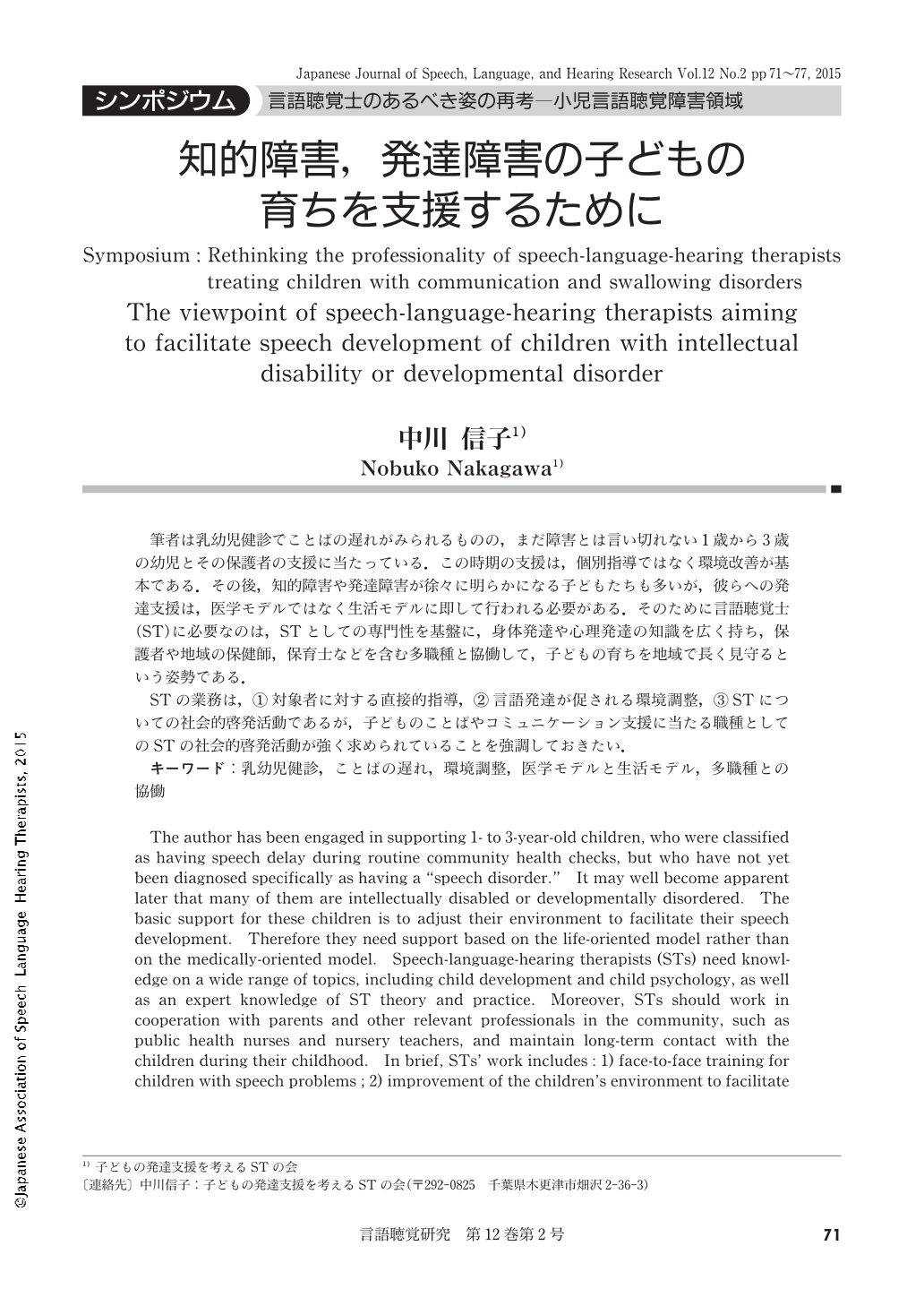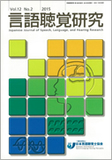Japanese
English
- 有料閲覧
- Abstract 文献概要
- 1ページ目 Look Inside
- 参考文献 Reference
筆者は乳幼児健診でことばの遅れがみられるものの,まだ障害とは言い切れない1歳から3歳の幼児とその保護者の支援に当たっている.この時期の支援は,個別指導ではなく環境改善が基本である.その後,知的障害や発達障害が徐々に明らかになる子どもたちも多いが,彼らへの発達支援は,医学モデルではなく生活モデルに即して行われる必要がある.そのために言語聴覚士(ST)に必要なのは,STとしての専門性を基盤に,身体発達や心理発達の知識を広く持ち,保護者や地域の保健師,保育士などを含む多職種と協働して,子どもの育ちを地域で長く見守るという姿勢である.
STの業務は,①対象者に対する直接的指導,②言語発達が促される環境調整,③STについての社会的啓発活動であるが,子どものことばやコミュニケーション支援に当たる職種としてのSTの社会的啓発活動が強く求められていることを強調しておきたい.
The author has been engaged in supporting 1- to 3-year-old children, who were classified as having speech delay during routine community health checks, but who have not yet been diagnosed specifically as having a "speech disorder." It may well become apparent later that many of them are intellectually disabled or developmentally disordered. The basic support for these children is to adjust their environment to facilitate their speech development. Therefore they need support based on the life-oriented model rather than on the medically-oriented model. Speech-language-hearing therapists(STs)need knowledge on a wide range of topics, including child development and child psychology, as well as an expert knowledge of ST theory and practice. Moreover, STs should work in cooperation with parents and other relevant professionals in the community, such as public health nurses and nursery teachers, and maintain long-term contact with the children during their childhood. In brief, STs' work includes:1)face-to-face training for children with speech problems;2)improvement of the children's environment to facilitate speech development;and 3)public information activities to raise awareness for the profession. It is emphasized that STs need to enhance public understanding regarding their professional role in supporting speech, language and communication development of children.

Copyright © 2015, Japanese Association of Speech-Language-Hearing Therapists. All rights reserved.


